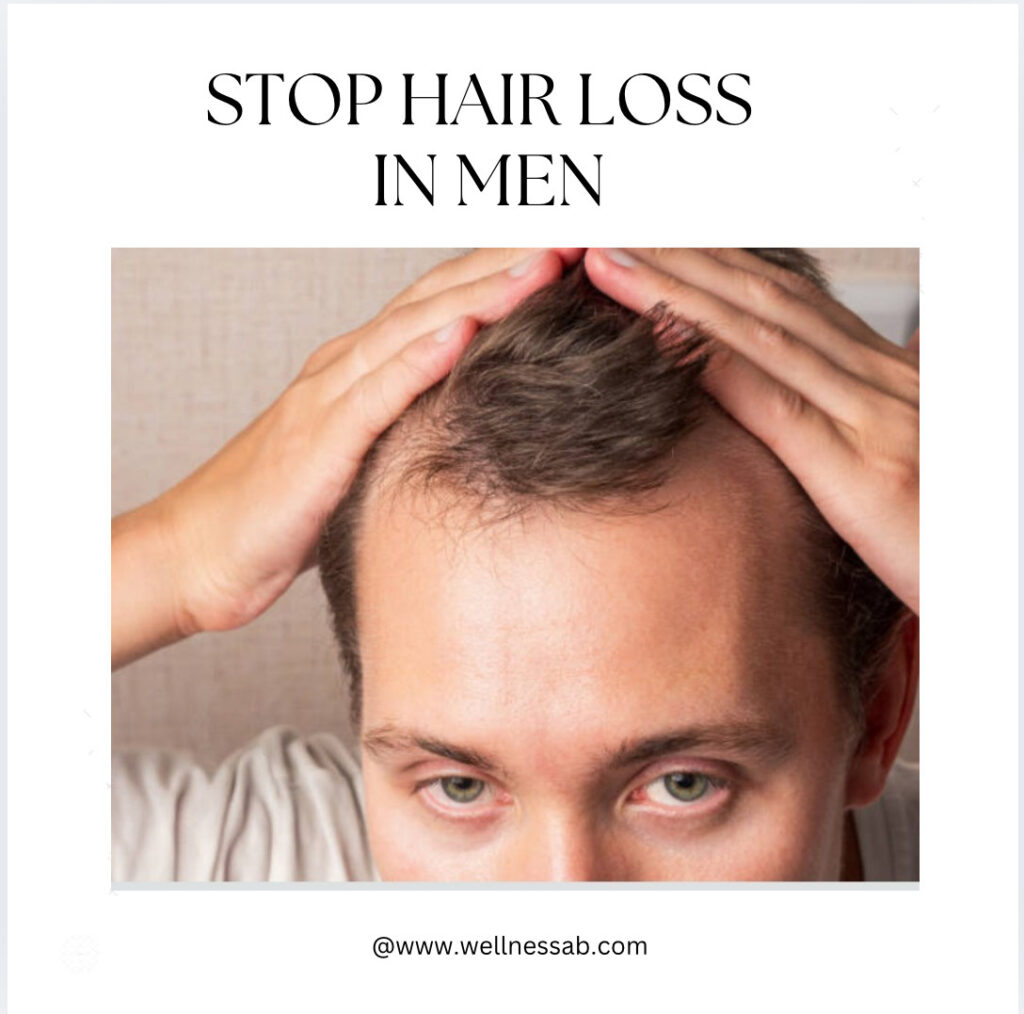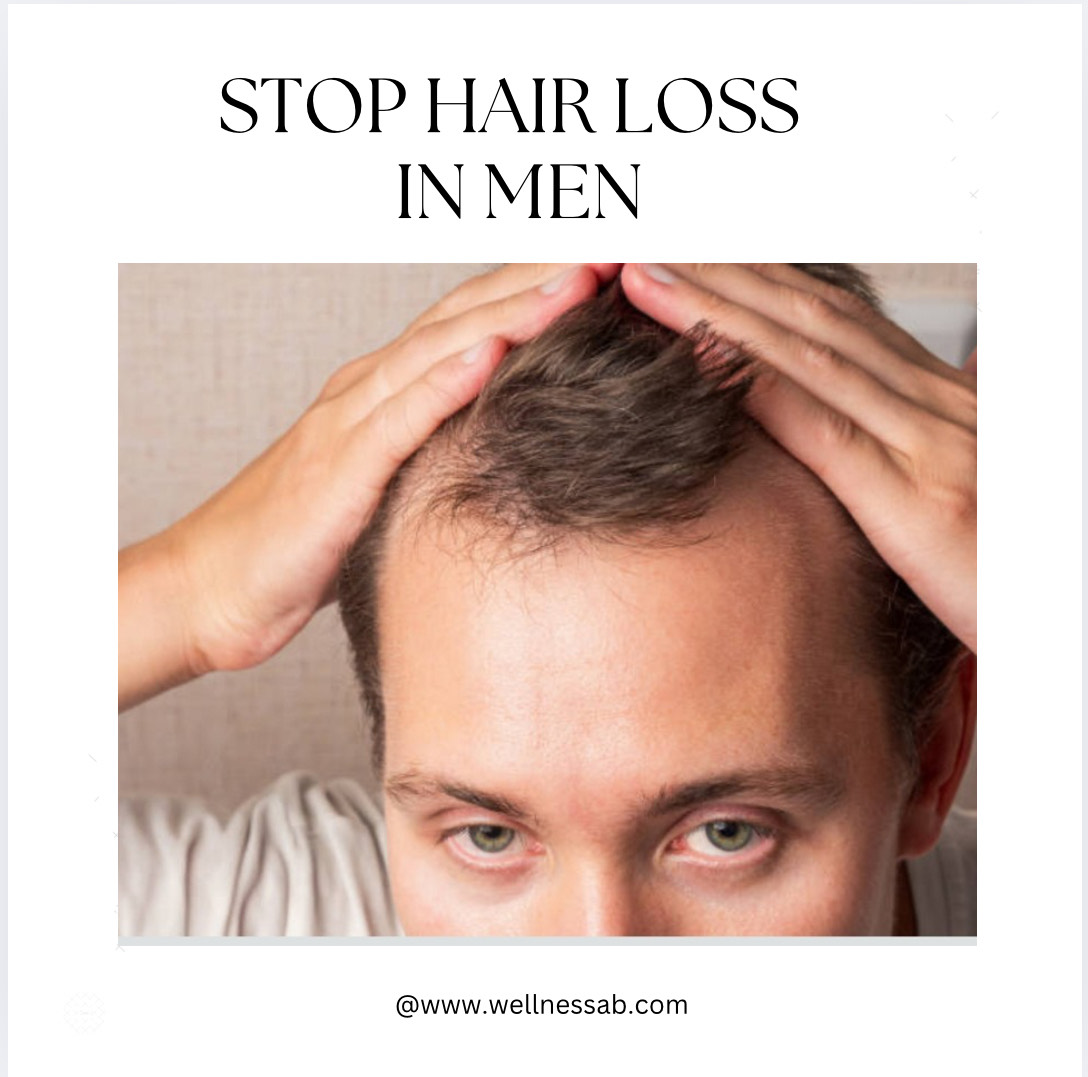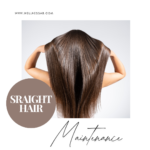
Table of Contents
INTRODUCTION
Hair loss is a common issue faced by many men at various stages of life. From genetic predispositions to lifestyle choices, the causes of hair loss can be numerous. Fortunately, you will be able to find a variety of effective treatments available today to slow, stop, or even reverse hair loss in men. In this article we will explore some of these treatments, ranging from medical solutions to natural remedies which will further help you in finding the best path to address your hair loss concerns .
Reasons For Hair loss In Men
Hair loss in men can result from genetics, hormonal changes, medical conditions, or aging. Androgenetic alopecia also known as (male pattern baldness) is often characterized by a receding hairline and thinning on the crown of the head. Other types includes Alopecia Areata (an autoimmune condition), Telogen Effluvium (temporary shedding often due to stress), and Traction Alopecia (caused by hairstyles that pull on the hair).
1. Medications for Hair Loss
Minoxidil (Rogaine): Minoxidil ( A topical medication ) is an FDA-approved treatment that stimulates hair growth and slows hair loss. Available in the form of liquid and foam, it’s applied directly to the scalp. While results may vary, many men get to see a noticeable results after four to six months of consistent use .
Finasteride (Propecia): This is an oral prescription medication that targets DHT (dihydrotestosterone), a hormone linked to hair loss. Finasteride is effective for many men in slowing down hair loss and promoting regrowth of new hair follicles .However, it may come with side effects, so a doctors consultation is required in this method.
2. Hair Transplant Surgery
- Follicular Unit Transplantation (FUT): Also known as the strip method involves removing a strip of scalp from the back of the head and dissecting it into individual follicular units, which are then implanted into balding areas.
- Follicular Unit Extraction (FUE): FUE involves extracting individual hair follicles and transplanting them directly onto bald or thinning areas. This technique leaves minimal scarring and has a faster recovery time compared to the above mentioned procedure.
Both FUT and FUE provides permanent results, though it might take several months to see complete results. This surgery is only ideal for those men who are experiencing advanced hair loss and seeking a long-lasting solution.
💇♀️✨ Struggling with Dry and Frizzy Hair? Discover Effective Treatments That Actually Work! 🌟
Click the link to explore the best solutions for smooth, hydrated, and frizz-free hair. Say goodbye to dryness and hello to healthy shine! 👉 Read More
3. Laser Therapy
Low-level laser therapy (LLLT) uses laser devices to stimulate hair follicles, improve blood flow to the scalp, and encourage regrowth. This non-invasive treatment can be performed at home using laser combs, caps, or in a clinic under professional supervision. Doctors recommended to use laser therapy consistently for several months to see noticeable results.
4. Platelet-Rich Plasma (PRP) Therapy
This particular therapy has gained popularity as a natural treatment for hair loss. The process involves drawing a small amount of the patient’s blood, separating the platelets, and injecting the platelet-rich plasma into the scalp which in turn helps in stimulating the hair follicles and promote regrowth. Several sessions are usually required, and PRP therapy is often used in combination with other treatments.
5. Topical Treatments and Hair Serums
Numerous topical treatments are available in the market that contain ingredients like caffeine, biotin, saw palmetto, and ketoconazole, which can help to reduce hair loss and stimulate growth in new hair
- Caffeine-Based Serums: Studies have shown that caffeine can extend the life cycle of hair follicles, making it a popular ingredient in hair loss products.
- Ketoconazole Shampoos: Ketoconazole is a type of antifungal medication that may reduce hair shedding and improve scalp health.
- Biotin Supplements: Though there’s limited evidence that biotin can also regrow hair, it is often recommended to support healthy hair, skin, and nails.
6. Natural Remedies and Dietary Changes
Natural remedies like following certain dietary and lifestyle changes may help in slowing down hair loss and promote a healthier scalp environment.
- Omega-3 Fatty Acids: Omega-3 Fatty Acids are found in fish like salmon and mackerel. It helps reduce inflammation and promote a healthy scalp.
- Vitamin D and Zinc: Both these nutrients are linked to hair health, and deficiencies in either of the two can lead to hair thinning.
- Herbal Supplements: Saw palmetto and green tea are often used to combat hair loss, though more studies are needed to confirm their efficacy.
7. Scalp Micropigmentation (SMP)
This cosmetic procedure involves tattooing micro dots onto the scalp to give an appearance of a shaved head. An excellent option for men who want a fuller-looking scalp without going through surgery. It’s also shows effective results in covering scars from previous hair transplants.
8. Scalp Massages and Micro needling
Scalp Massages: Massaging the scalp on a regular basis stimulates blood flow, which can benefit hair follicles and promote regrowth.
Micro needling: Involves using a derma roller to create tiny punctures in the scalp thus increasing the collagen production and helping other treatments (like Minoxidil) to penetrate better.
9. Lifestyle Adjustments for Hair Health
- Reduce Stress: High levels of stress can lead to telogen effluvium. Certain Techniques such as practicing meditation, yoga, and regular exercises can help manage stress levels and promote overall well-being.
- Avoid Smoking and Excessive Alcohol: Try to avoid smoking as much as possible as it reduces blood flow to the scalp, while excessive alcohol can cause dehydration affecting the overall hair health.
- Gentle Hair Care Routine: Using mild shampoos, limiting heat styling, and avoiding tight hairstyles can help reduce breakage and minimize hair loss.
Frequently Asked Questions (FAQs)
- Can hair loss in men be reversed?
- If Hair loss is due to temporary factors like stress or nutritional deficiencies. For genetic or androgenetic hair loss certain treatments like Minoxidil, Finasteride, and hair transplants can help slow, stop, or even regrow hair.
- How long does it take to see the results ?
- Results may vary depending on the treatment. Topical solutions like Minoxidil may show improvement in 4–6 months, while hair transplantation can take up to a year to see proper results.
- Are natural remedies effective ?
- Natural remedies, like dietary supplements and herbal extracts, can support hair health, but they are generally less effective than medical treatments in reversing or stopping hair loss.
- Is hair loss preventable?
- While genetic hair loss may not be completely preventable, following a healthy lifestyle, managing stress, and following a gentle hair care routine can help slow its progression.
- What are the side effects of medications?
- Some users of Minoxidil experience scalp irritation, while Finasteride may cause sexual side effects. Consult a healthcare professional before beginning any treatment.
- How effective are laser treatments ?
- Laser therapy can be effective ,during early stages of hair loss, but results may vary and typically require consistent treatment over several months.
CONCLUSION
Hair loss doesn’t necessarily have to be a permanent situation. With a right treatment plan and lifestyle adjustments, men can effectively address hair loss and regain confidence. A medical professional can also guide on the best treatments available based on individual needs and hair loss patterns. From medication to surgery and lifestyle changes, there are top hair loss treatments available to combat hair loss and restore a fuller, healthier head of hair.











